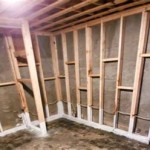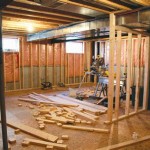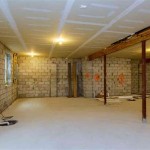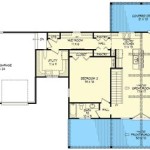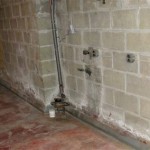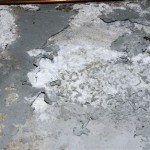What Is a Good Humidity Level for Your Basement?
Basements, often described as the "forgotten space" of a home, are prone to accumulating moisture. This can lead to various problems, including mold growth, structural damage, and unpleasant musty odors. Maintaining an optimal humidity level in your basement is crucial for preserving its integrity and ensuring a healthy living environment. This article will explore the ideal humidity range for basements, discuss the potential risks of excessive moisture, and provide practical tips for controlling humidity levels.
Ideal Humidity Range for Basements
The recommended humidity level for a basement is between 30% and 50%. This range promotes a comfortable and healthy environment while minimizing the risks associated with excessive moisture. However, the ideal humidity level can vary depending on factors such as climate, ventilation, and the presence of water sources. For instance, basements in humid climates may require slightly lower humidity levels to prevent condensation and mold growth.
Maintaining a relative humidity level below 50% is particularly important for preventing mold growth. Mold spores are ubiquitous in the environment, and they thrive in damp conditions. When humidity levels exceed 60%, the risk of mold proliferation increases significantly. Mold can cause various health problems, including respiratory issues, allergies, and even serious infections. It can also degrade building materials, causing structural damage and costly repairs.
Potential Risks of Excessive Moisture in Basements
High humidity levels in basements can pose several risks to the structural integrity and health of the home. These risks include:
Mold Growth
As mentioned earlier, excessive moisture creates a breeding ground for mold, which can have serious health consequences and damage building materials.
Wood Rot
High humidity weakens wooden structures, making them susceptible to rot and decay. This can compromise the structural integrity of your basement, leading to costly repairs.
Condensation
Excess moisture in the air can condense on cold surfaces like concrete floors and walls, leading to dampness, mold growth, and an unpleasant musty odor.
Corrosion
High humidity accelerates corrosion of metal components in your basement, such as pipes, HVAC systems, and electrical wiring. This can lead to leaks, electrical malfunctions, and safety hazards.
Controlling Humidity Levels in Basements
Managing humidity levels in your basement requires a multi-pronged approach that addresses sources of moisture and improves ventilation. Here are some effective strategies:
Ventilation
Proper ventilation is crucial for removing excess moisture from the air. Install a dehumidifier in your basement and ensure that it is adequately sized for the space. Additionally, provide adequate ventilation by opening windows and doors when weather permits. Consider installing a whole-house ventilation system for optimal air circulation.
Moisture Control
Identify and address any sources of moisture in your basement. This includes fixing leaks in pipes, roofs, or windows, and ensuring that gutters are properly functioning. Use moisture-resistant materials, such as vinyl flooring, for basement finishes. Consider a moisture barrier or vapor retarder on basement walls to prevent moisture penetration.
Regular Inspections
Regularly inspect your basement for signs of moisture problems, such as condensation, mold growth, and dampness. Monitor the humidity levels with a hygrometer and address any issues promptly to prevent them from escalating.
Maintaining a controlled humidity level in your basement is essential for protecting your health, your home, and your investment. By understanding the risks of excessive moisture and implementing effective control strategies, you can create a comfortable and healthy environment in your basement.

How To Lower Your Basement S Humidity Level

A Guide To Controlling Nc Home Humidity Newcomb And Company

Dehumidifier Setting Chart What Should Be Set At

What Is The Ideal Basement Humidity Level Epp Foundation Repair

How To Achieve An Ideal Basement Humidity Of 30 50

How To Lower Your Basement S Humidity Level

The Ideal Humidity Level For Your Basement Reliable Waterproofing

Relative Humidity Chart For Ideal In The House

How To Achieve An Ideal Basement Humidity Of 30 50

Ideal Basement Humidity And How To Achieve It Epp Foundation Repair
Related Posts
